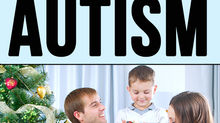Autism Wandering Tips
- Sep 15, 2013
- 2 min read
It’s a parents’ worst fear: a lost child. All children tend to wander, but it’s an increased concern for parents of children with autism. Autism wandering is a problem; learn helpful tips for avoiding this issue here.
The National Autism Association states, “At least 13 children with autism have wandered or bolted from safe environments and accidentally drowned since April.” Worse, the National Center for Missing & Exploited Children now considers children with autism “wandering” off and becoming lost a TREND. The safety implications that arise when children wander are massive, and they increase exponentially when that child has autism.
Statistics show that “autism wandering” will occur with almost 50% of families facing an autism diagnosis.
Sadly, a portion of these children will be non-verbal, making it very difficult for them to communicate with people who may find and/or attempt to help them. What makes matters worse is the fact that many children with autism are drawn to bodies of water; drowning is a serious concern. Transportation poses a risk too – freeways and even trains are known to draw the attention of children with autism.
As the instance of “autism wandering” increases, many of these children are not found in time. The increased difficulty of finding a child with autism paired with the fact that law enforcement isn’t always informed right away decreases the likelihood of finding a child before they are injured or worse. Thankfully, there are procedures and strategies that law enforcement agencies are learning so they can effectively search for a missing child with autism. Most importantly, there are things parents can do to help keep a child from wandering and, in the event of a wandering child, make it easier to find them.
Here are some tips to keep your children with safe:
Talk to your neighbors: Physically speaking, they are the closest people to your child besides you. If they understand the increased possibility of your child wandering off, they will be extra vigilant.
Notify anyone else who interacts with your child: Teachers, friends, extended family, co-workers…anyone who can help notice if your child is missing when you are not there.
Note what your child is drawn to, and from: Does your child love the pond next to the school, but hate loud noises? These facts can help those closest to your child (and law enforcement) locate the child faster. Determine what your child is drawn to, and what they dislike, and then make sure to inform those closest to your child. Sadly, statistics show that “between 2009 and 2011, accidental drowning accounted for 91% of total deaths reported in children with autism, ages 14 and younger, who went missing.”
If your child is missing, call the police IMMEDIATELY: The sooner law enforcement is involved in finding your child, the chances of saving your child from a tragic situation increase. Many police departments have specialists with experience with finding missing children; do not waste any time involving them.








































Comments